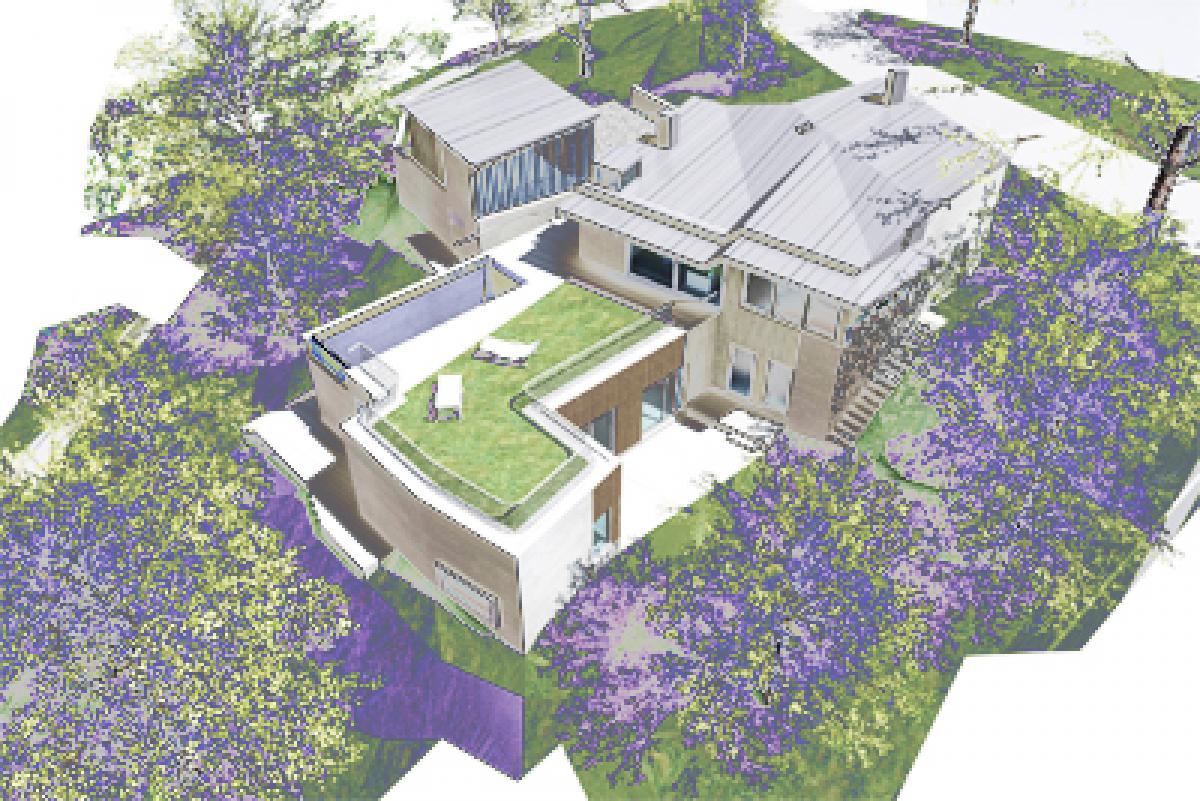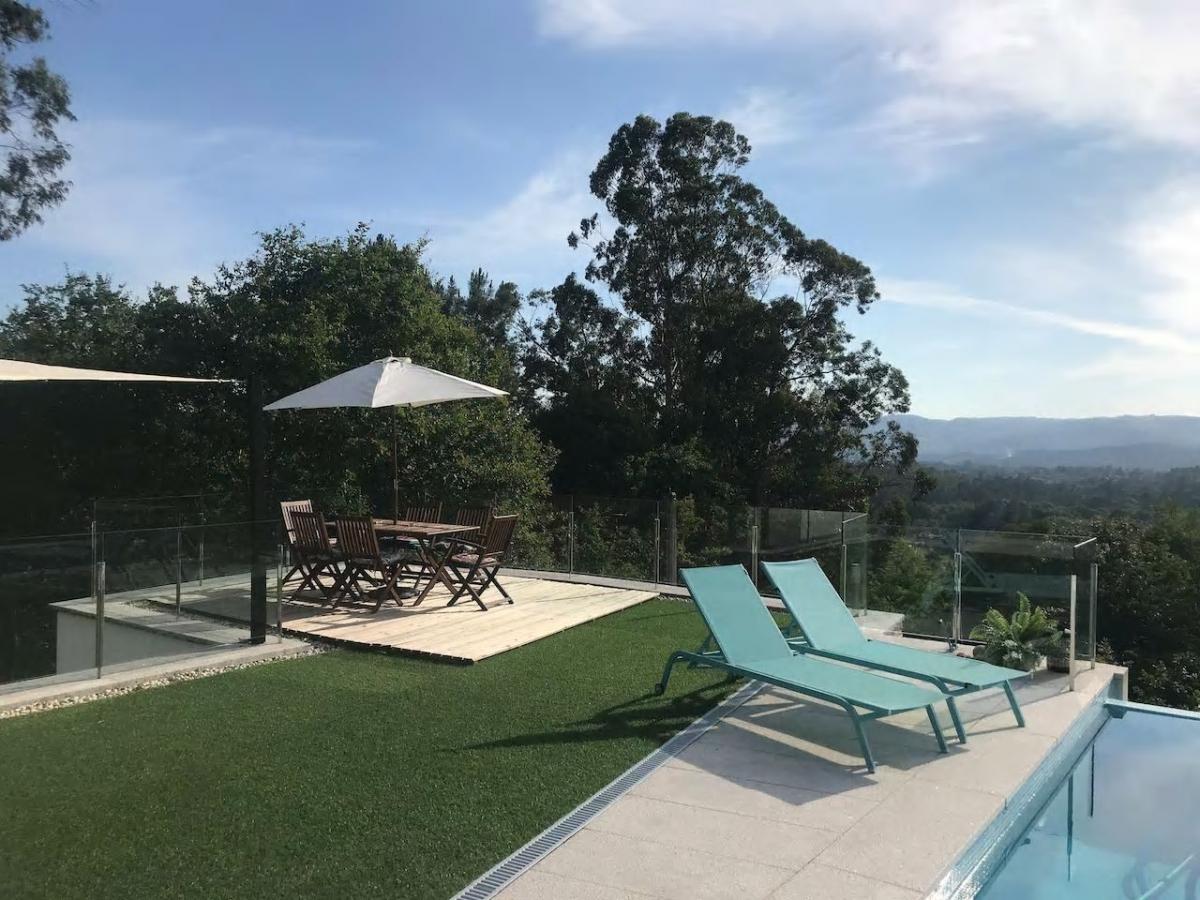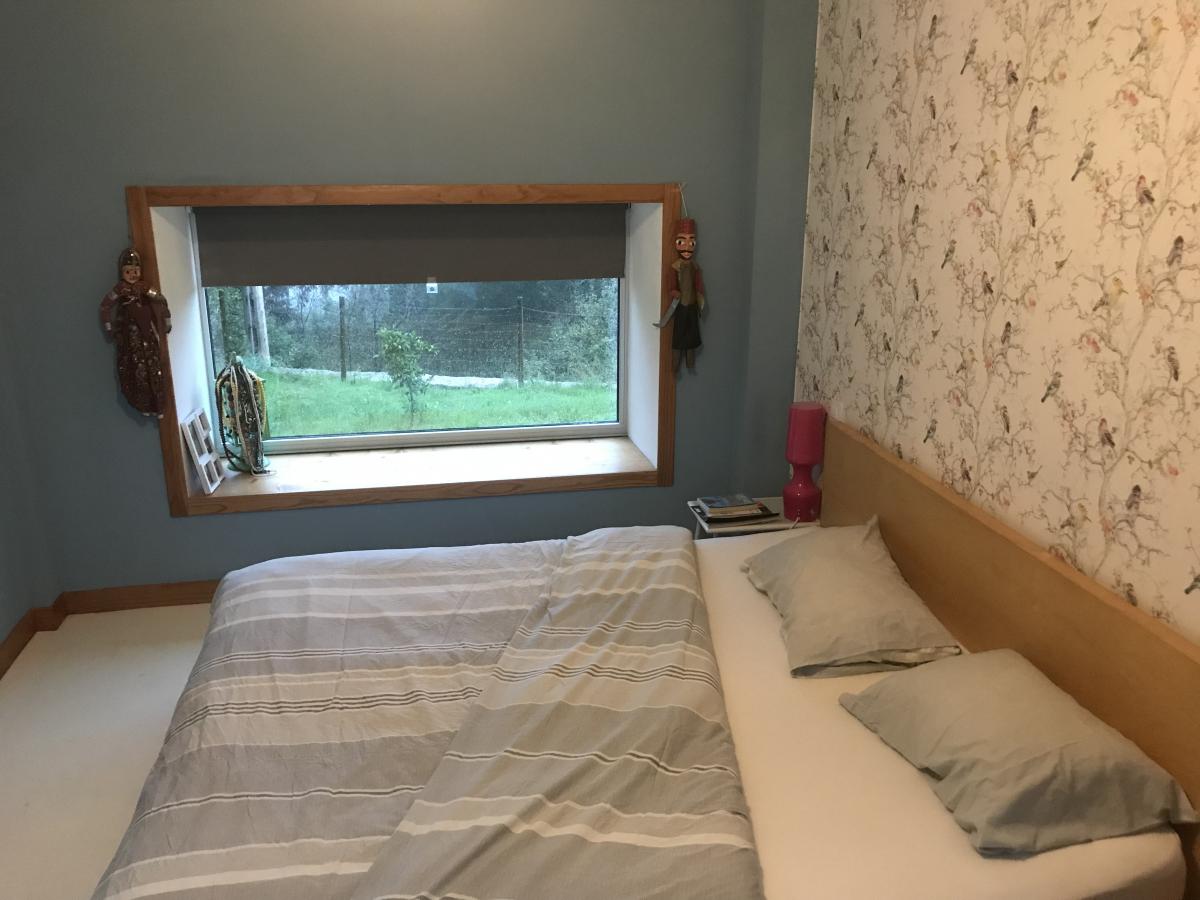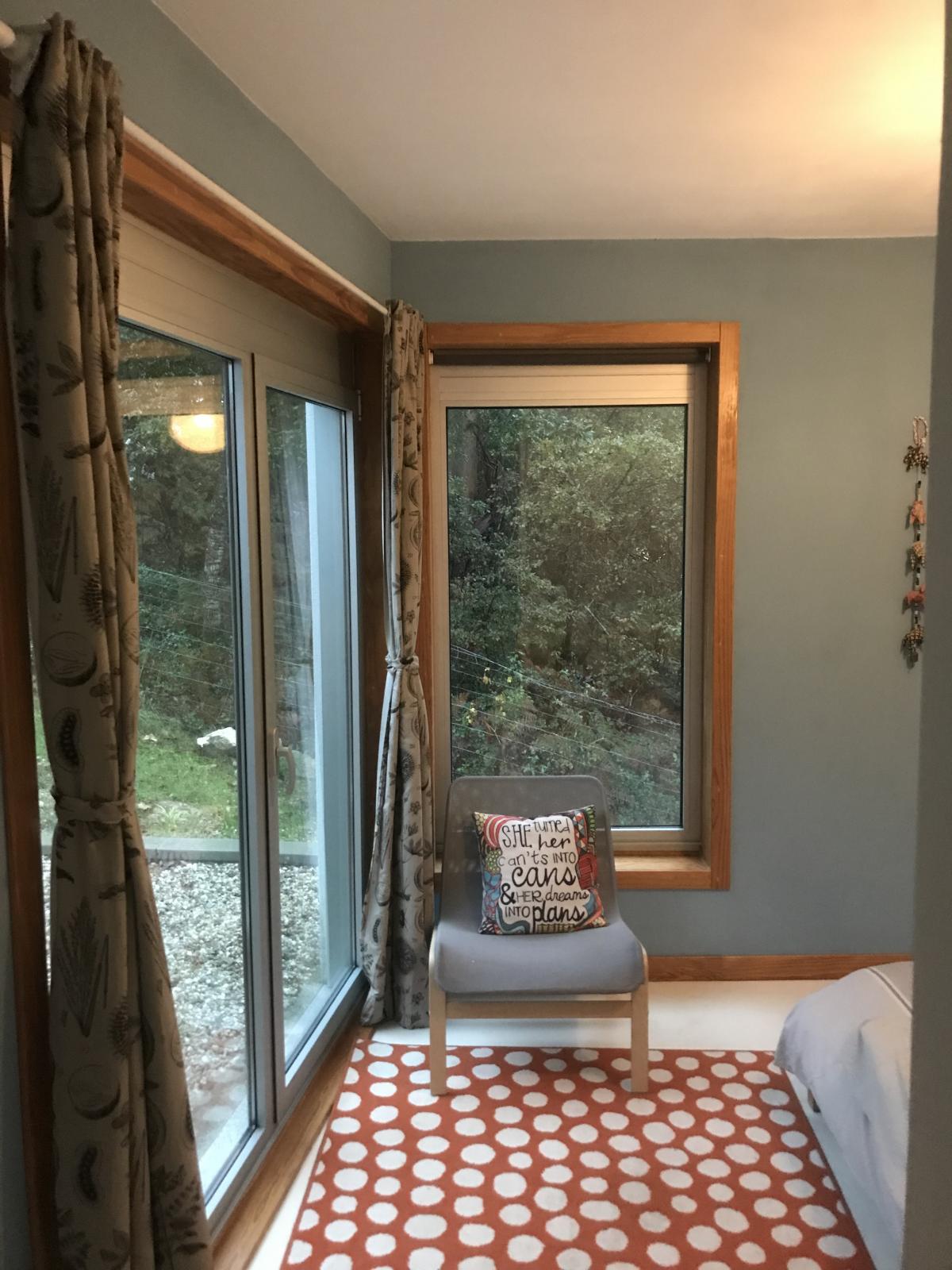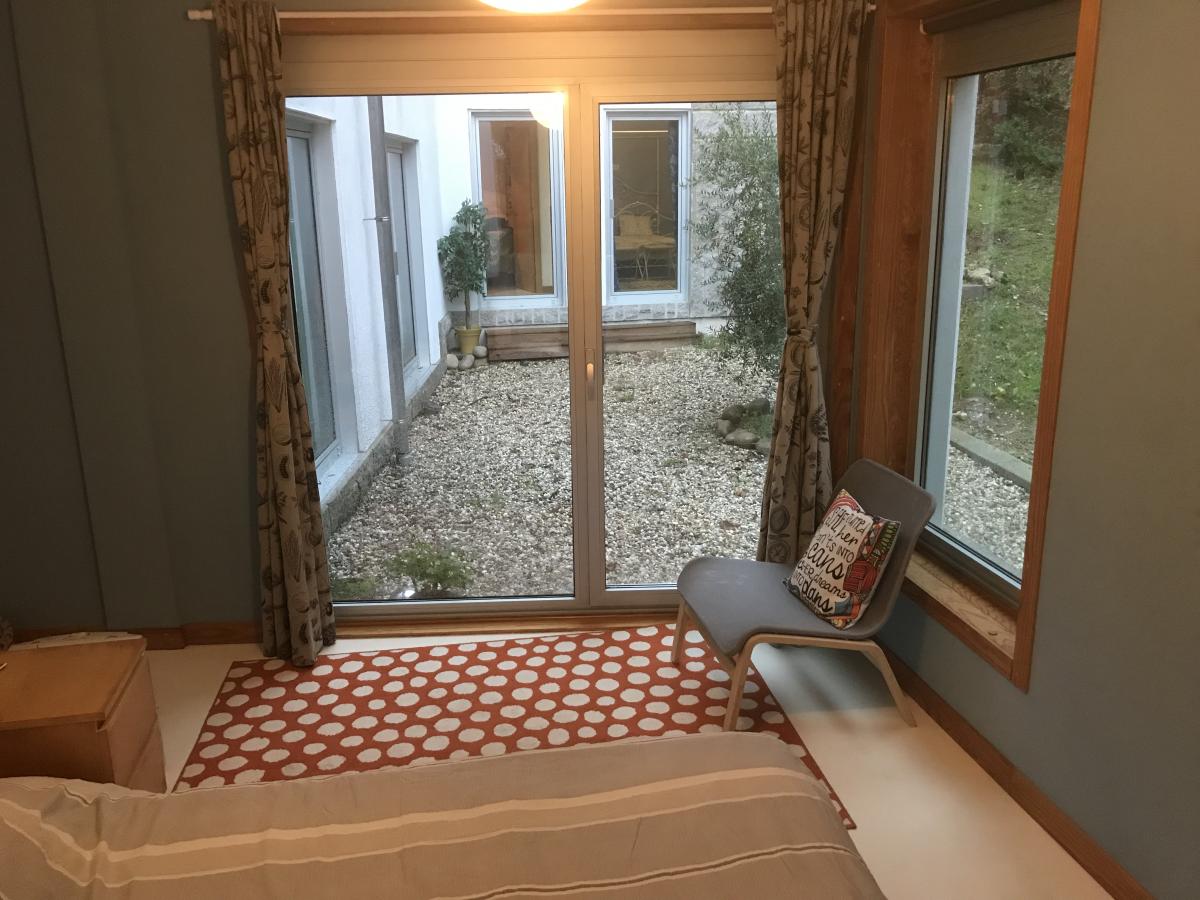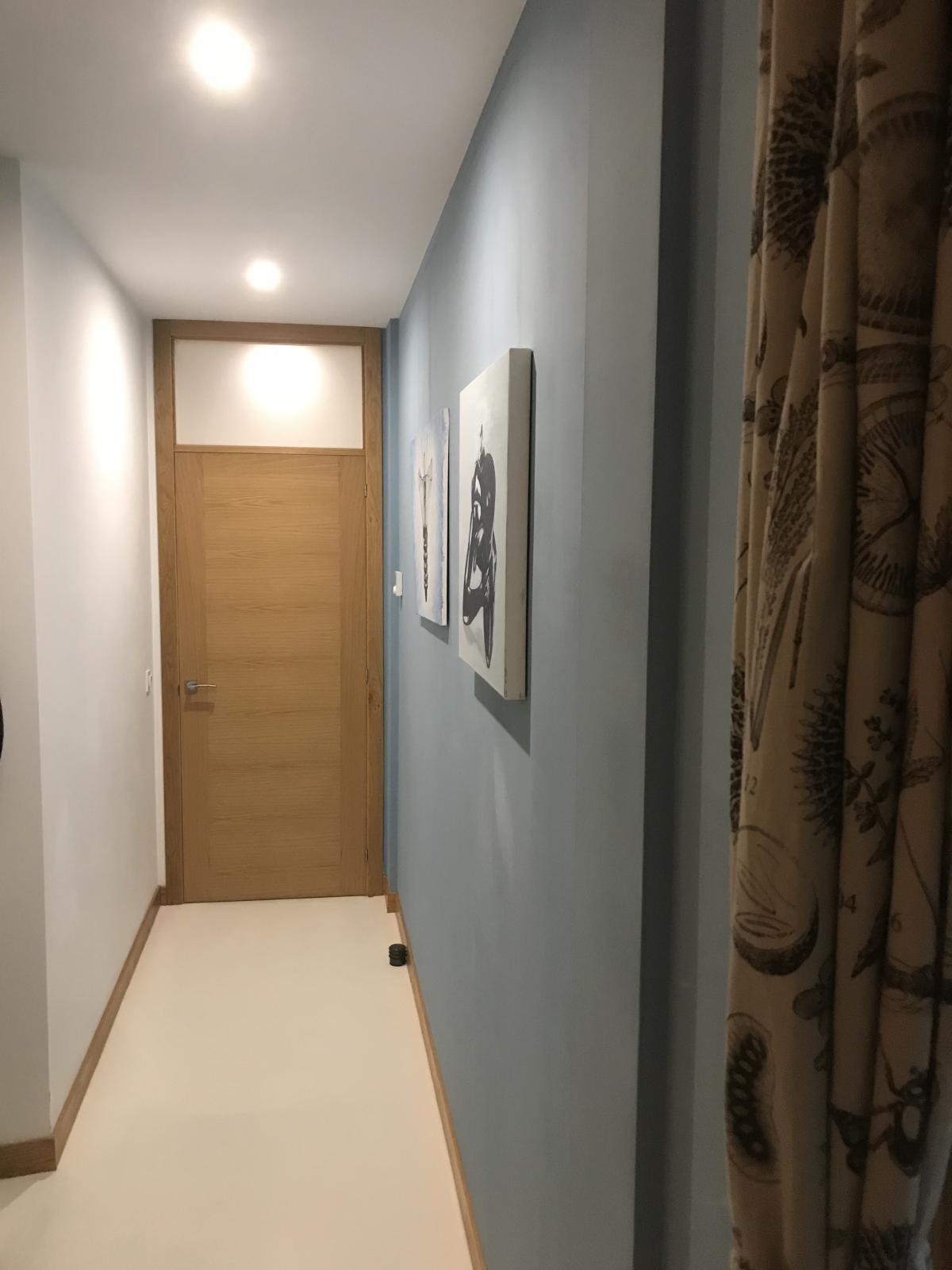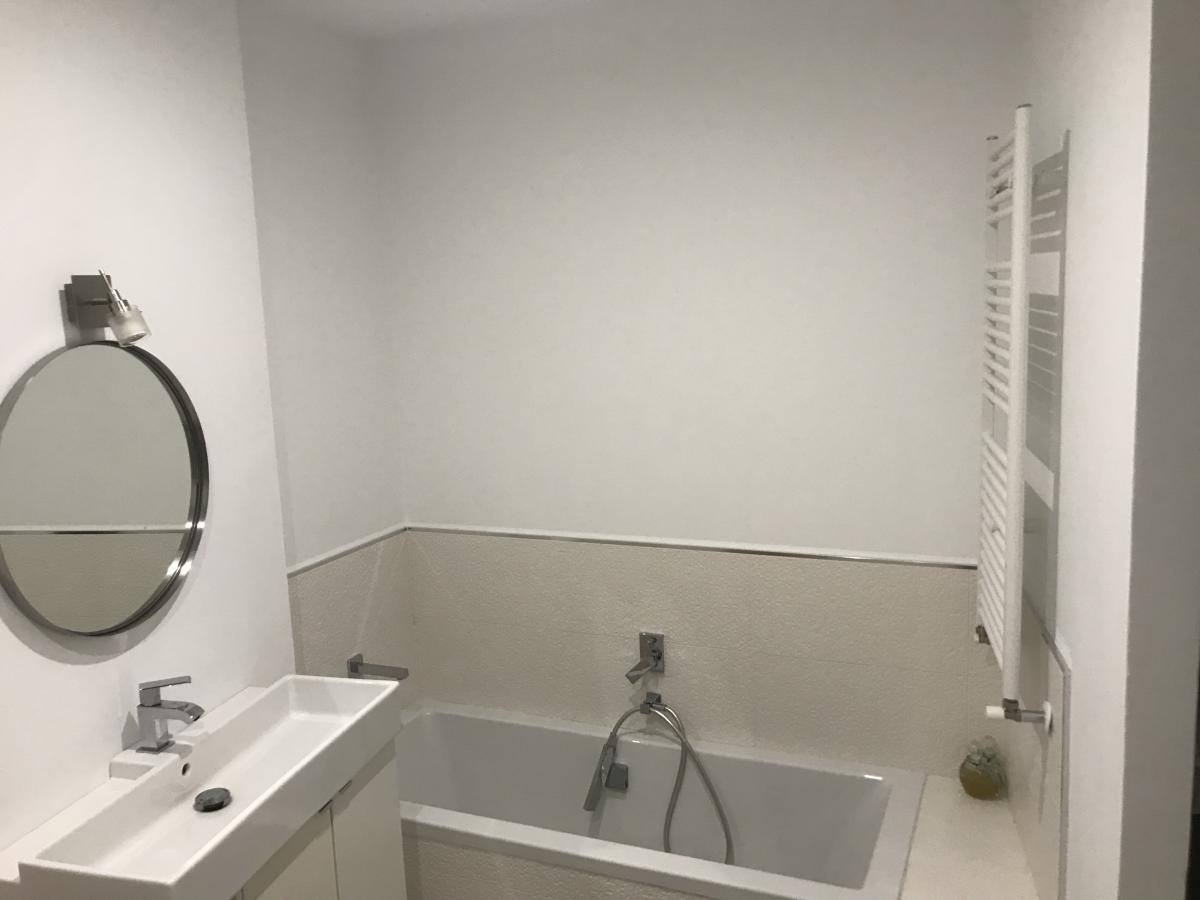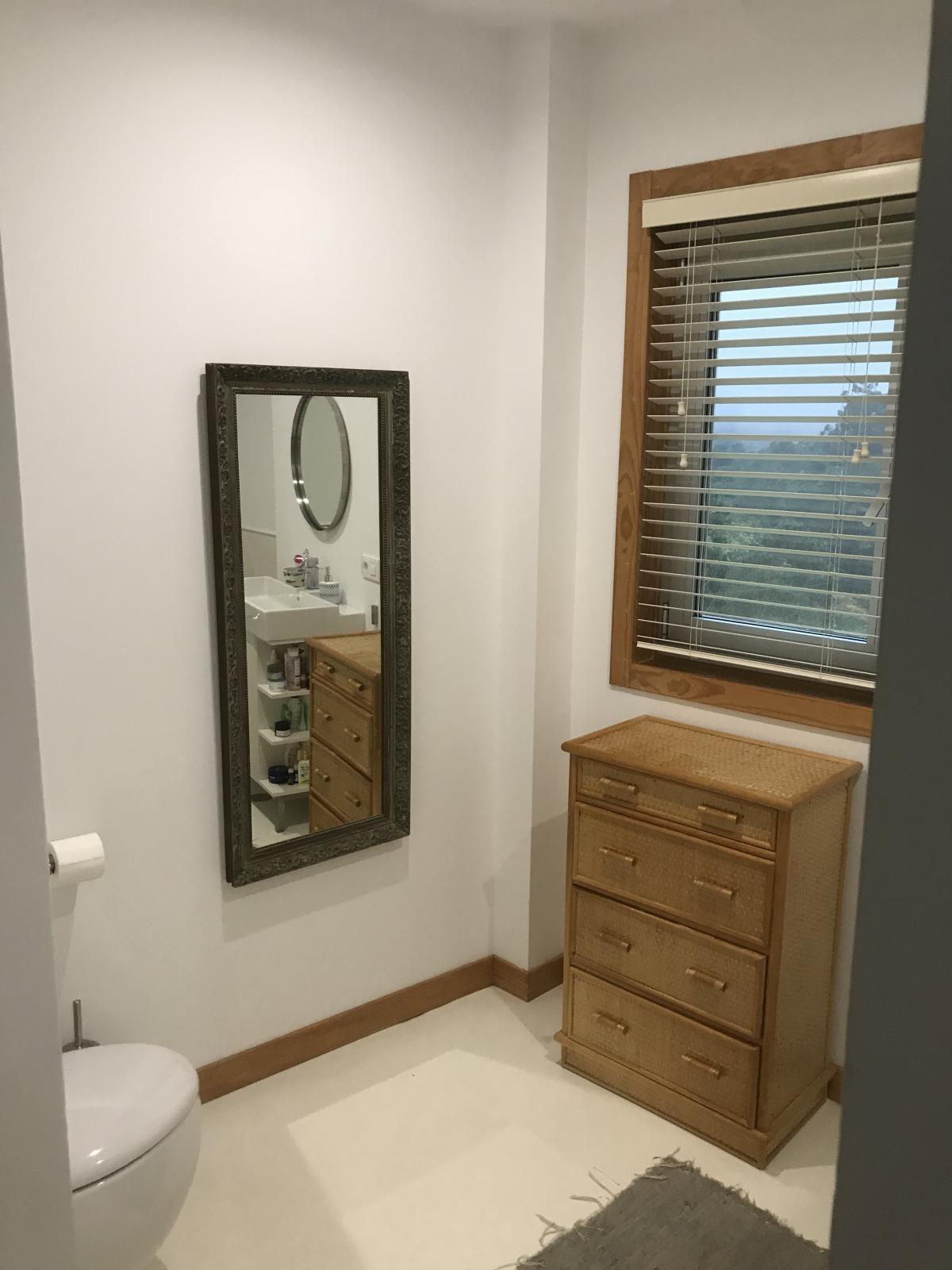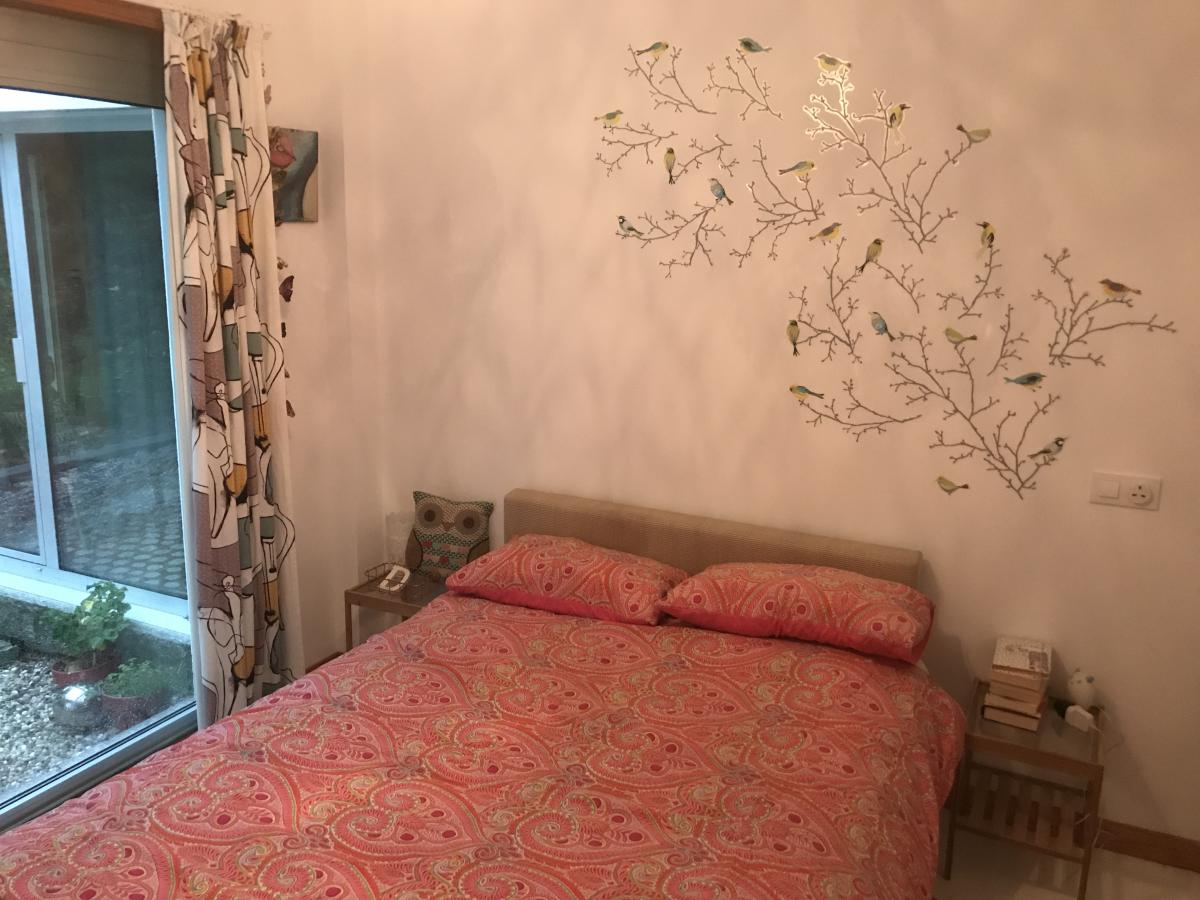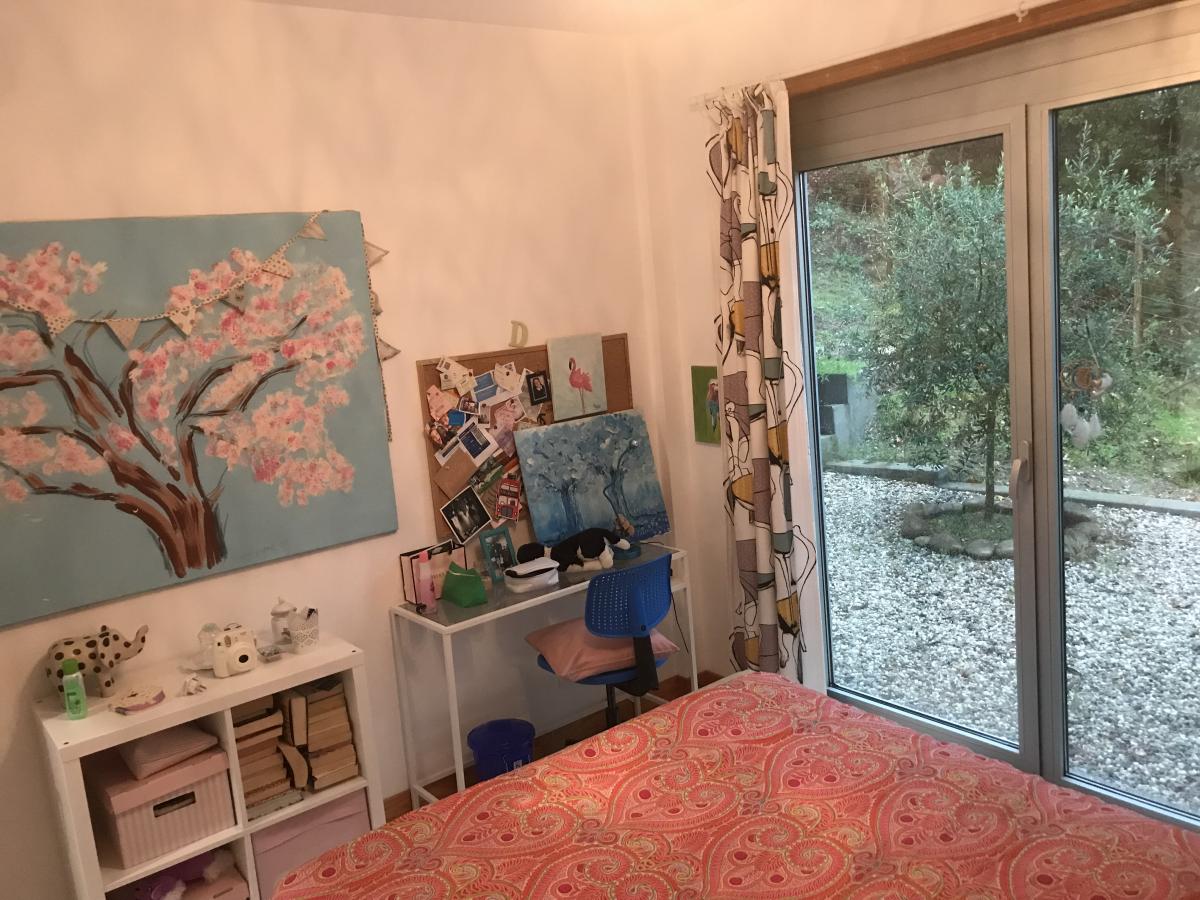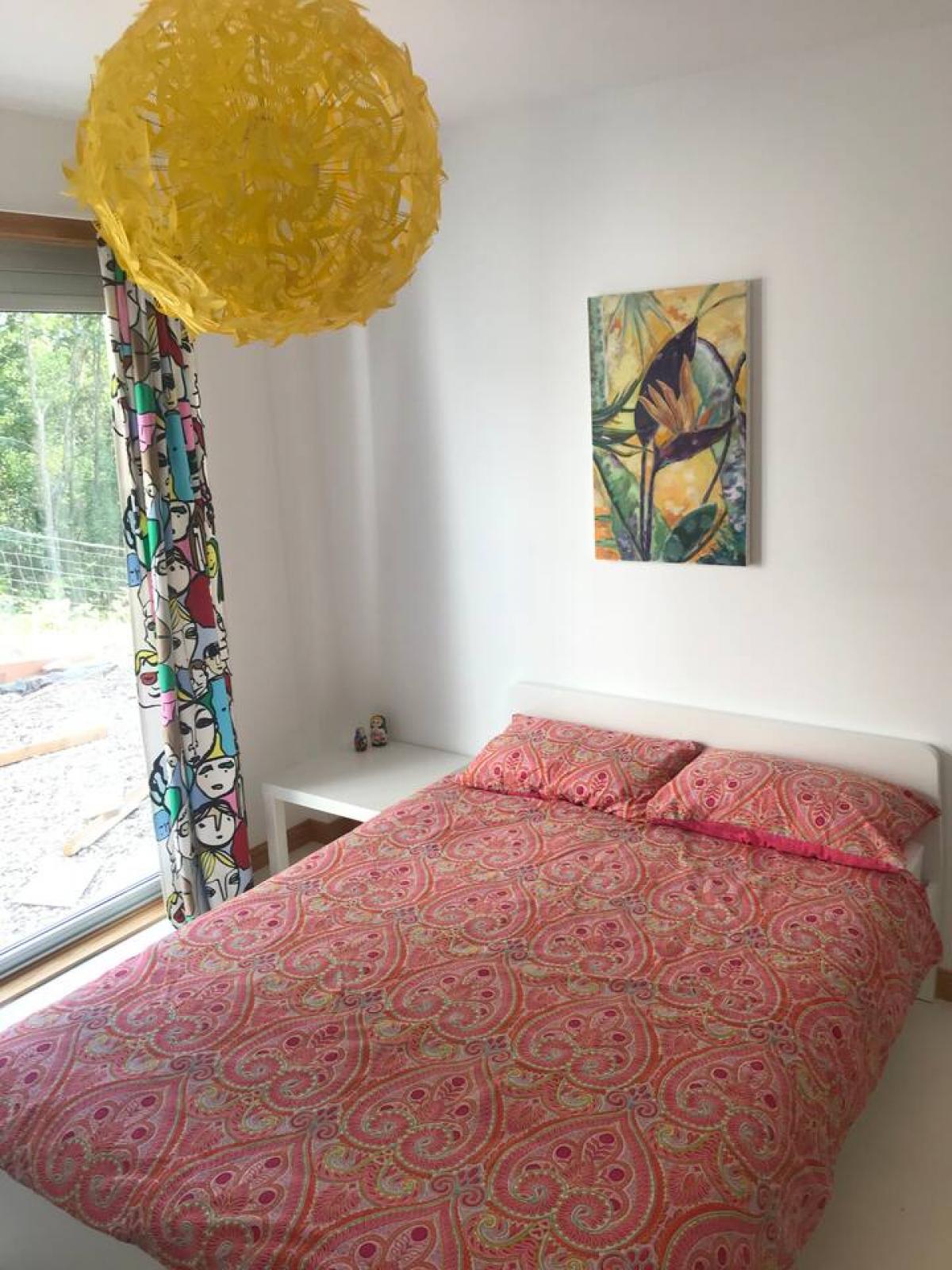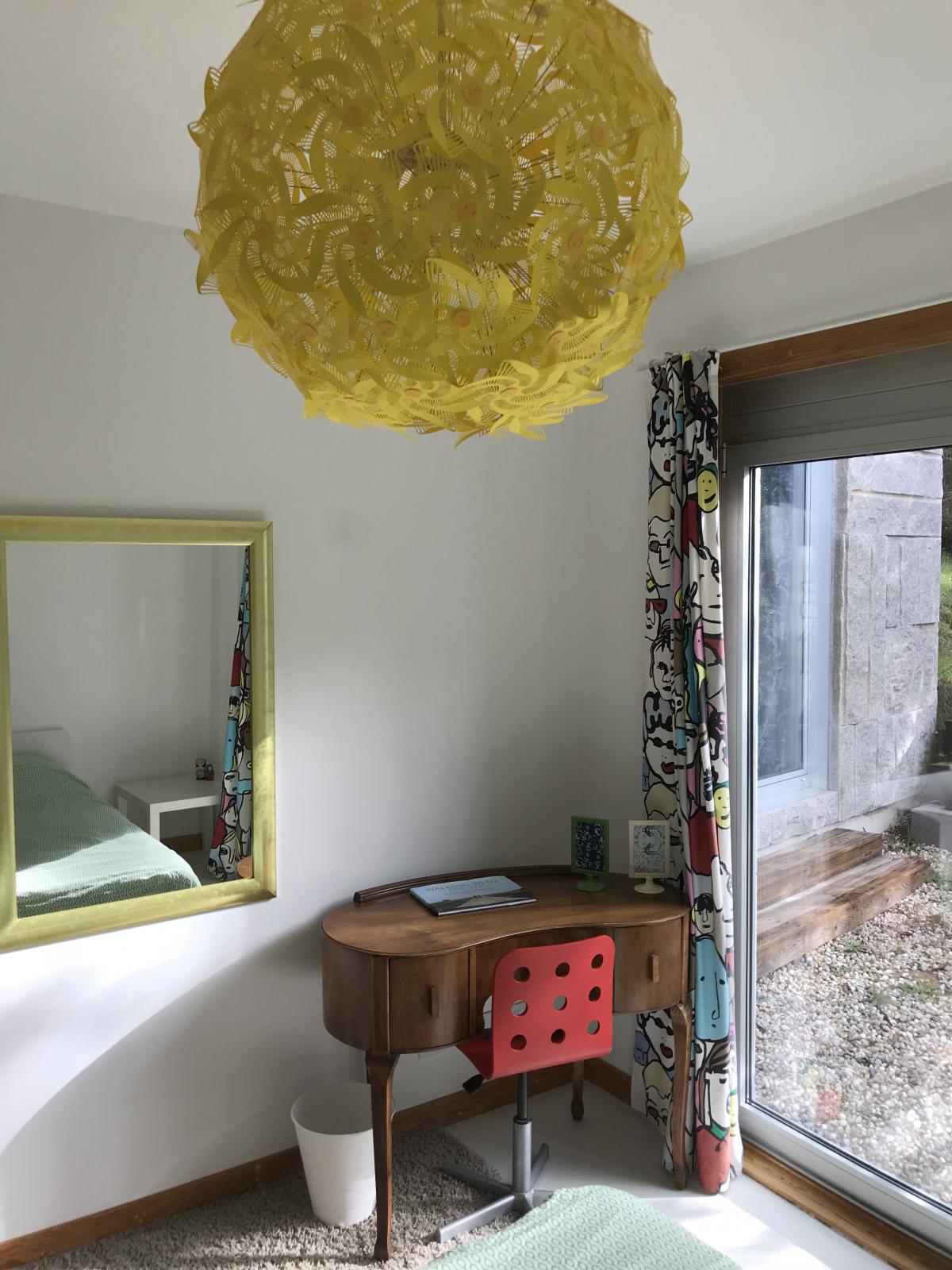Villa For Sale
€489,544
A Fraga Do Rei, Małopolskie|lesser Poland, Spain
4bd 200 sqm
Year Built: 0
Listed By: Euro Resales
Listed On: 06/09/2023
Listing ID: GL5338117
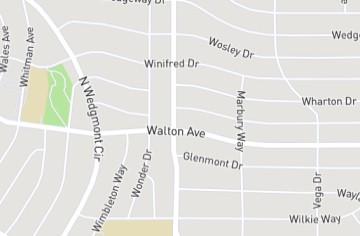
Description
Euroresales Property iD- 9825377Property information:
The architectural award winning rural house sits on a mountainside and is surrounded by forest . The modern design has a natural stone facade and zinc finished roof.
The house has 240m2 of floor area and spans two levels.
The Upper level is open plan and comprises of a living room, kitchen and dining room. This is accompanied by a bathroom and larder/ cloakroom. The living space has a glazed West facing wall that opens onto a roof garden, with a decked seating area and infinity pool overlooking a valley view perfect for sunsets.
The lower level is a glazed south facing living area, situated around a courtyard. There are four bedrooms, a family bathroom, a laundry/ playroom and a boiler/storage room. The master bedroom has an ensuite bathroom and walk in wardrobe.
Underfloor heating in the house is supplied by geothermal energy.
The house is located on a mountain side and sits on a 1400m2 fenced plot surrounded by forest, with the closest neighbour 300 metres away. Parking is off road and accessed by an electric gate. The lawned garden has a barbecue/ picnic bench area, vegetable patch and scattered fruit trees/ grape vines.
There are two rooms under the house opening onto the garden, for tools and storage.
The house is located 25km from Vigo airport and approximately 2 hours from airports in Santiago de Compostela, A Coruna and Oporto. A private helicopter service for airport taxi is located 2.4km away from the house.
Features:
Living Room
Kitchen
Dining Room
4 Bedrooms
3 Bathrooms
Roof Garden
Deck Seating Area
infinite Pool
Courtyard
Playroom
Storage Room
Underfloor Heating
Electric Gated Parking Area
BBQ/Picnic Area
About the Area:
Galicia is an autonomous community of Spain and historic nationality under Spanish law. Located in the northwest iberian Peninsula, it includes the provinces of A Coruna, Lugo, Ourense and Pontevedra.
Galicia is bordered by Portugal to the south, the Spanish autonomous communities of Castile and Leon and Asturias to the east, the Atlantic Ocean to the west, and the Cantabrian Sea to the north. it had a population of 2,701,743 in 2018 and a total area of 29,574 km2 (11,419 sq mi). Galicia has over 1,660 km (1,030 mi) of coastline, including its offshore islands and islets, among them Cies islands, Ons, Salvora, Cortegada, and the largest and most populated, A illa de Arousa.
The area now called Galicia was first inhabited by humans during the Middle Paleolithic period, and takes its name from the Gallaeci, the Celtic people living north of the Douro River during the last millennium BC.
Galicia was incorporated into the Roman Empire at the end of the Cantabrian Wars in 19 BC, and was made a Roman province in the 3rd century AD. in 410, the Germanic Suebi established a kingdom with its capital in Braga (Portugal); this kingdom was incorporated into that of the Visigoths in 585.
in 711, the islamic Umayyad Caliphate invaded the iberian Peninsula conquering the Visigoth kingdom of Hispania by 718, but soon Galicia was incorporated into the Christian kingdom of Asturias by 740. During the Middle Ages, the kingdom of Galicia was occasionally ruled by its own kings, but most of the time it was leagued to the kingdom of Leon and later to that of Castile, while maintaining its own legal and customary practices and culture.
From the 13th century on, the kings of Castile, as kings of Galicia, appointed an Adiantado-mor, whose attributions passed to the Governor and Captain General of the Kingdom of Galiza from the last years of the 15th century. The Governor also presided the Real Audiencia do Reino de Galicia, a royal tribunal and government body. From the 16th century, the representation and voice of the kingdom was held by an assembly of deputies and representatives of the cities of the kingdom, the Cortes or Junta of the Kingdom of Galicia.
This institution was forcibly discontinued in 1833 when the kingdom was divided into four administrative provinces with no legal mutual links. During the 19th and 20th centuries, demand grew for self-government and for the recognition of the culture of Galicia. This resulted in the Statute of Autonomy of 1936, soon frustrated by Franco's coup d'etat and subsequent long dictatorship. After democracy was restored the legislature passed the Statute of Autonomy of 1981, approved in referendum and currently in force, providing Galicia with self-government.
Contact Euroresales Ltd for more information.


